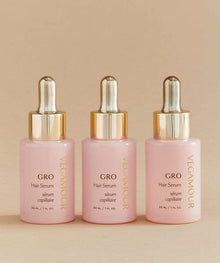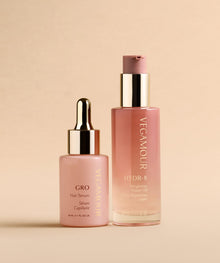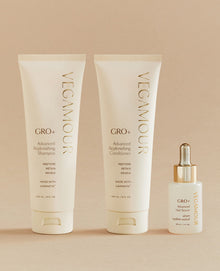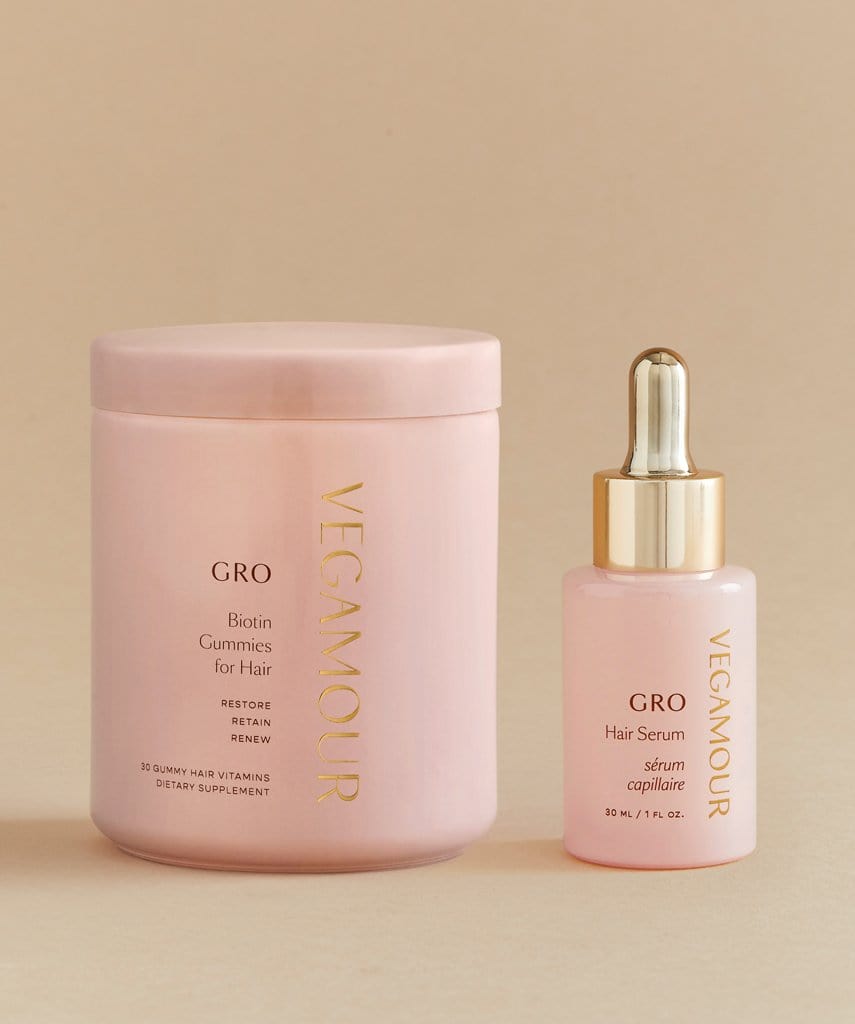The Lowdown on Inflammation (and How That Affects Your Hair)
Inflammation can be helpful — sometimes. Inflammation that helps your body heal after an injury. However, medical experts agree the chronic inflammation — the kind that persists long after an injury has healed and keeps your body in an “alerted” state — can have devastating effects on your health. These include premature aging, organ damage, DNA damage and the development of certain chronic diseases.
So what does all this have to do with your hair? Here’s the lowdown on inflammation, plus information the best products for stress-related hair problems.
Acute vs. Chronic Inflammation
We touched a bit on acute inflammation already — it’s your body’s response to an injury. You know acute inflammation as the swelling or redness around a wound, which is actually your body sending white blood cells to the area to speed up healing.
However, when the inflammation doesn’t go away — we’ll look at the causes for this in a sec — it can damage healthy tissue. Chronic inflammation doesn’t have the same symptoms as acute. You may experience fatigue, depression, weight gain or loss or even frequent infections.
At this point, inflammation has stopped being helpful and started being harmful. Chronic inflammation can affect everyone differently. Some may experience hair loss, while others may see gastrointestinal (GI) issues. It all depends on your unique self.
Read: What Is Forest Bathing? How the Japanese Relieve Stress Outdoors
What Causes Chronic Inflammation?
There are many reasons that inflammation can become chronic and cause a problem (or several problems) in the body. The risk factors for chronic inflammation include:
- Stress. Physical and emotional stress are both culprits when it comes to chronic inflammation (we’ll let you take this as another cue to practice self care).
- Obesity. Fat tissue can actually secret inflammatory mediators, which are compounds that can intensify inflammation in the body.
- Sleep disorders. Poor sleep is associated with chronic inflammation, so people with sleep apnea, insomnia or irregular sleep schedules may be more prone to chronic inflammation.
- Poor diet. Too much refined sugar and saturated fat can promote inflammation, especially if you’re already overweight.
- Smoking. Smoking is known for initiating a chronic inflammatory response throughout the body.
- Age. As you age, you’re more at risk to have accumulated free radical damage in the form of oxidative stress, which is an imbalance between free radicals and antioxidants in the body that can accelerate the aging process.
Shop: VEGAMOUR Best Sellers
How Does Inflammation Affect Hair Loss and Growth?
Does inflammation affect your hair growth? Yes, it certainly can.
Inflammation can be systemic, meaning it affects your whole body, or localized, meaning it only affects certain tissues. For example, in alopecia areata, an autoimmune condition that causes patches of your hair to fall out, inflammation is localized.
In alopecia areata, inflammation may “dysregulate” the hair shaft, leading to a lack of development and growth. Inflammation can trigger hair loss by stopping hair growth and inducing the catagen phase — the “resting” phase — of hair growth instead of the anagen phase, or growth phase.
Some experts believe that healthy hair growth can’t happen unless inflammation on the scalp is controlled and treated. In scarring alopecia, a type of hair loss, inflammation actually destroys the hair follicles, meaning they can’t regrow hair.
Inflammation may help explain the link between hair loss and medical conditions such as lupus, hypothyroidism or hyperthyroidism and nutritional deficiencies.
Inflammation can essentially damage hair follicles and inhibit hair growth, making it harder for your hair growth product or supplements to work when the underlying cause goes unaddressed!
Also: This Is How Folic Acid Affects Hair Growth
How Can You Stop Inflammation From Affecting Your Hair Growth?
The good news is that you can stop inflammation from affecting your hair growth. While getting evaluated by your physician is always a good idea to rule out any autoimmune conditions or other health problems, you can then practice these daily habits to help reduce chronic inflammation and support hair health!
- Eat healthy foods. Refined sugar and saturated fat can promote chronic inflammation. Instead, focus on healthy fats such as olive oil, and eat plenty of fruits and veggies.
- Exercise. Exercise combined with healthy eating can help you stay at a healthy weight, which can also reduce your risk for chronic inflammation. Even just 20 minutes of exercise has been shown to lower inflammation.
- Get enough sleep. While everyone is different, aiming for about eight hours every night can help ensure your body gets the rest it needs. During sleep, your body repairs tissues, detoxes the brain and supports healthy hormone production, all of which can help keep you (and your hair!) healthy and balanced.
- Reduce stress. While stress is part of being human, chronic stress can invoke chronic inflammation. Do you best to reduce stress, which can not only support physical and emotional health, but can help you feel better in general!
Try This: Pure Marula Oil for Hair, Skin and Nails
Are There Ingredients That Can Help Lower Inflammation and Support Healthy Hair?
Yes, there are certain ingredients that have been shown to help lower inflammation. Cannabidiol (otherwise known as CBD), for instance, can help suppress inflammatory responses in the body with both anti-inflammatory and antioxidant properties, meaning it has therapeutic benefits for oxidative stress. Oxidative stress is the term for when free radicals and antioxidants aren’t balanced in the body, which can lead to premature aging and tissue damage. Oxidative stress is closely linked to chronic inflammation. If you’re looking for an easy way to incorporate CBD into your wellness routine, you might want to try VEGAMOUR’s GRO+ Advanced Gummies, which not only support healthy hair growth, but may also reduce stress.
In addition curcumin (from turmeric) and red clover have also been shown to lower inflammation.
Again, inflammation is inevitable and a natural part of your body’s processes. But like with most things, there is too much of a good thing. When you have it under control you can set your crowning glory up for success — and your mind and body too.
More From VEGAMOUR
- Shop: Anna Grace Newell's Favorite VEGAMOUR Picks
- Does Creatine Cause Hair Loss?
- How to Moisturize Your Scalp
- Learn More About Scarring Alopecia
- Can Grief Cause Hair Loss?
- Gym Tan's VEGAMOUR Picks
Photo credit: Andrea Piacquadio/Pexels














